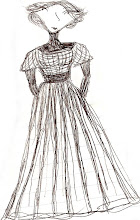After watching Will Richardson's video, Weblogs in Education, I stopped and thought about the relevance of different blogs to my personal and professional lives, and student learning. I actually have kept two blogs over the years. One is very personal, and public posts are rare. The second blog (also kept on blogger), focuses primarily on my hobbies.
For student learning, blogs can be indispensable tools. As in Richardson's video, a class can create blogs to host book discussions --- and invite the author's input! I would love to collaborate with a history teacher: the students can create a blog of "current events" during a particular time in history. The students can each be a different character, and comment on one another's blog posts.
However, like all things, there is a dark side to blogging. There are safety and privacy issues to always consider. For the personal blog, I actually have several security measures in place. There is a friend's list. Only people I have "friended" can read those posts. Within those posts, however, is another layer of security, a "custom friends list". Not all my "friends" on this blogging site are people I know. The "custom" list is information that I only feel comfortable sharing with close friends who I actually know.
With the knitting blog, it's very public. However, I watch what I write on it. I keep as much personal information off it. No one needs to know where I keep my wool stash or where I live!
Children are very innocent, and the majority of children I have met are very trusting. While a blog in a fifth grade class sounds like a great idea, I worry that the kids might reveal too much of their private lives. Their surnames, their addresses... With blogging, as with everything else related to the Internet, Internet safety must always be taught.
However, blogging to connect with students in other countries, with authors of books, with movers and shakers in specific fields? That's awesome. This is the new way of journal-keeping, with comments from all over the world. To find bloggers with similar interests? Nifty! Students who feel that no one else has the same interest as them can find other bloggers with similar interests (a student interested in beekeeping can probably find quite a bit of beekeeping blogs, blogs about bees, blogs about first aid for bee stings).
NBSLS Librarian of the Year Award
14 years ago


